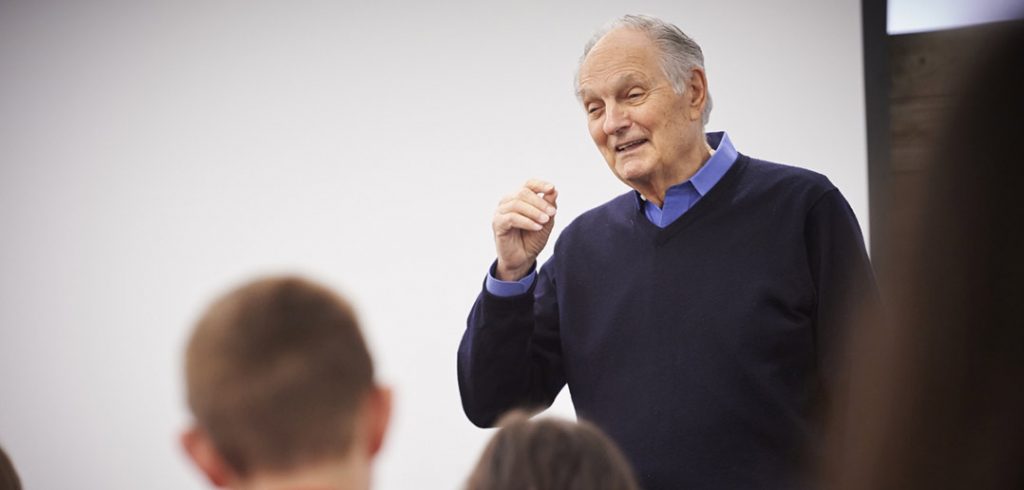The veteran actor promotes clear, respectful talk about tough scientific topics.
Climate change is a charged topic, and discussions about it can become, shall we say, heated. How to lower the temperature?Alan Alda, FCRH ’56, has been working on this kind of thing for decades, promoting techniques not only for conveying science more clearly but also for enhancing communication by becoming more attuned to one another. And he draws on his experience as a six-time Emmy Award-winning actor, writer, and director.
“It may never have been more urgent to see the world through another person’s eyes than when a culture is divided so sharply,” he said in accepting a lifetime achievement award from the Screen Actors Guild in 2019. “Actors can help, at least a little, just by doing what we do.”
Alda’s efforts toward better communication are detailed in his book If I Understood You, Would I Have This Look on My Face? My Adventures in the Art and Science of Relating and Communicating (Random House, 2017), and on Clear + Vivid, the podcast he launched in 2018. At the Alan Alda Center for Communicating Science, which Alda founded at Stony Brook University, researchers take a page from the playbook for actors by using improvisational exercises to get in a better state for communicating. And they also learn about the importance of deep interpersonal connection.
Alda has noted the importance of such connections in discussing issues like climate change, which often generates fierce arguments about how humanity should respond.
In an interview last year for the WNYC Studios radio show Science Friday, he emphasized trust and openness. “I don’t think I’m really listening unless I’m willing to be changed by you,” Alda said. “And that doesn’t mean that I’m going to agree with what you’re saying, but I might be changed by something about you, some deeply held belief you have, about just living, about your dedication to your children, or something like that, and I might be touched by that.
“That’s more important than hitting you over the head with my argument, I think, because it leads to more interaction.”

